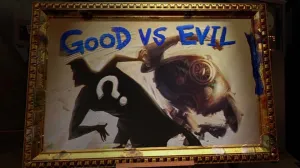Internal documents seem to show that Juul — one of the biggest names in the e-cigarette market — was intentionally targeting underage consumers in their advertising campaigns for vaping paraphernalia, according to a new lawsuit. The documents, obtained through a lawsuit filed against Juul by the office of the Massachusetts Attorney General, indicates that the company bought advertising time on Nickelodeon and Cartoon Network, as well as on websites that were targeted specifically at children. Massachusetts claims that Juul’s early advertising campaigns specifically set out to market to children, in spite of Juul’s defense that they have always made it clear their products are for adults.
Videos by ComicBook.com
The lawsuit, which you can read in full here, claims that Juul intentionally sought out younger talent for their ad campaigns, including Suicide Squad actress Cara Delevigne and social media influencers. They reportedly rejected a campaign aimed at older smokers who were looking to quit traditional cigarettes.
“Juul knew it was selling to kids,” Attorney General Maura Healey said at a news conference. “They plastered the internet.”
Some of the sites targeted, Healey’s office claims, were even sites designed for pre-school-aged kids.
Vaping surged in popularity in recent years, in part because of a perception that it was significantly more safe than traditional smoking. As the medical field begins questioning that assumption, more politicians have turned their attention to a growing number of teens turning to vaping instead of traditional smoking to get a nicotine fix.
Federal numbers say over 25% of American teens have vaped in the past month, while Massachusetts claims that 1 in 3 high schoolers use the devices.
When accusations that Juul had targeted teens first cropped up in 2018, company co-founder James Monsees claimed that they had never done so, and that while their early campaigns did skew young, the ads were short-lived, and intended to target smokers in their twenties and thirties.
“While we have not yet reviewed the complaint, we remain focused on resetting the vapor category in the U.S. and earning the trust of society by working cooperatively with attorneys general, regulators, public health officials, and other stakeholders to combat underage use and transition adult smokers from combustible cigarettes,” a Juul spokesperson told Buzzfeed News in a statement.
If it turns out that Juul misled investigators, it could become an even bigger problem than just bad public relations for the company. In the ’90s, traditional tobacco companies ended up facing massive fines and tons of new regulations after it turned out that they had both targeted underage consumers and lied to Congress about research linking smoking to various long-term ailments, including cancer and lung disease.








